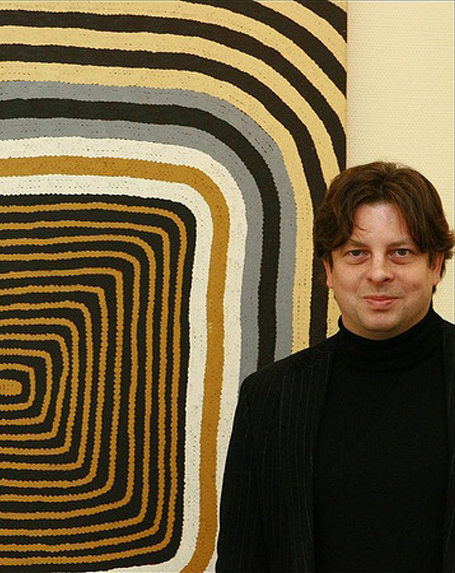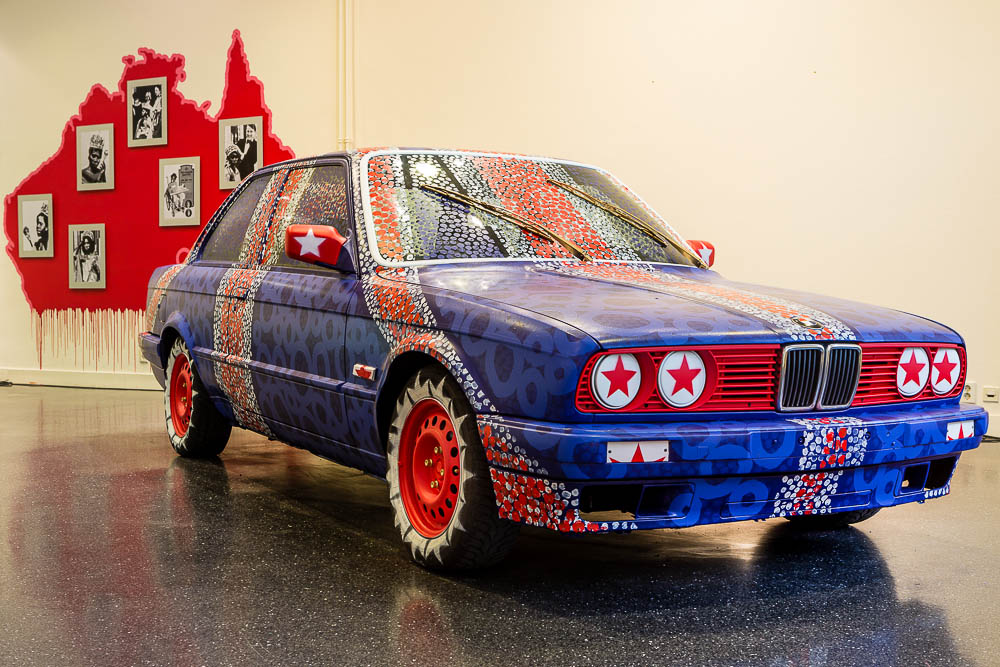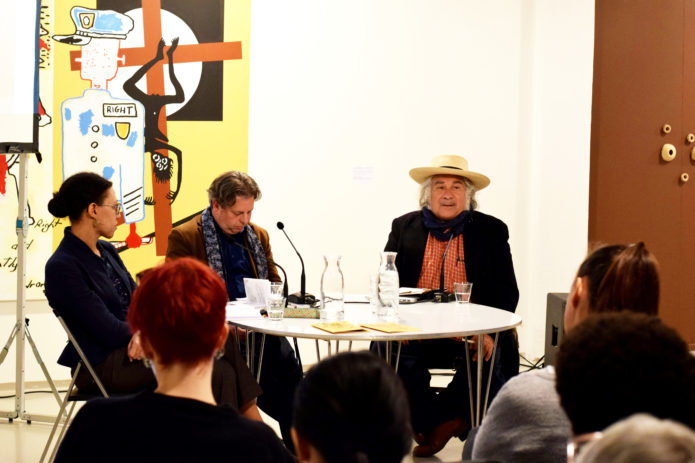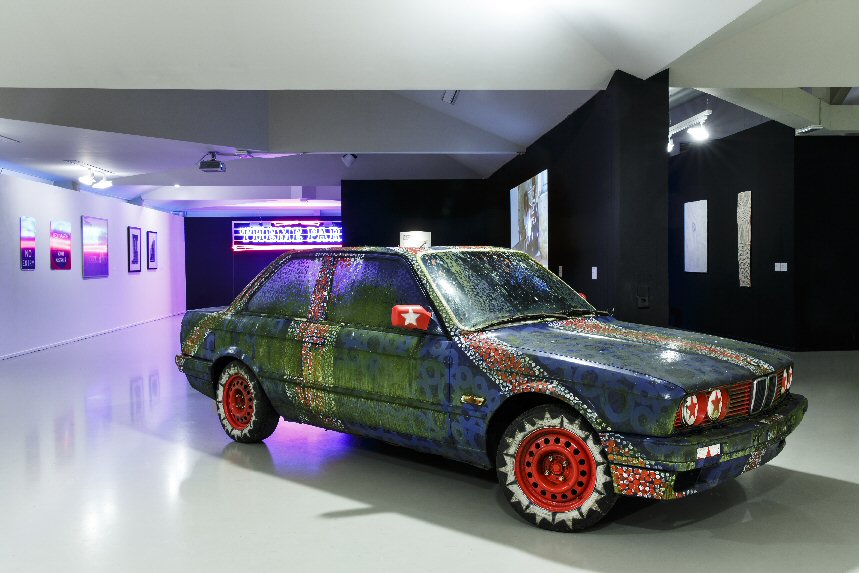 Installatiefoto In the future everything will be as certain as it used to be (2017) bij Framer Framed. Foto: © Eva Broekema / Framer Framed
Installatiefoto In the future everything will be as certain as it used to be (2017) bij Framer Framed. Foto: © Eva Broekema / Framer Framed 22 Apr 2017
16:00 - 18:00
Symposium: In the future everything remains uncertain
In the future everything remains uncertain:
A discussion on art collections in flux
On Saturday 22 April 2017, Framer Framed presents a closing symposium accompanying the current exhibition In the future everything will be as certain as it used to be (16.03-23.04 2017), a collaboration with AAMU – Museum of contemporary Aboriginal art, curated by Georges Petitjean.
—
In June 2017, AAMU has to close its doors after 16 years. The aim of AAMU is to present work by Aboriginal artists in a contemporary art museum context, critiquing the pigeonholing of Aboriginal art as ‘ethnographic’. In the 2008 Theme Park exhibition, for example, artist Brook Andrew looked into the perception and development of stereotypes and presented a dialogue between the local & the global, the East & the West and ‘high art’ & ‘low art’.
The case of the AAMU raises questions regarding collection policies in the Netherlands more generally. Why, for instance, does Australian Aboriginal art even ‘need’ its own museum, rather than being incorporated in the national Dutch contemporary art and cultural heritage museums? Underlying this issue are restricting either/or categorizations of art which require critical reassessment, such as ‘contemporary’, ‘modern, ‘ethnographic’, ‘traditional’. An example is the decision by Kees van Twist (director Groninger Museum 1999-2011) to give the Groninger Museum’s contemporary Aboriginal art collection on a long-term loan to the AAMU because ‘the Groninger Museum is not an ethnographic museum’.
In this debate, we will discuss several questions emerging from the AAMU case. What is the current status of collection policies in the Netherlands and what are the recent developments? What strategies can we employ to advance a decolonial, global and more inclusive collection policy? What can we learn from international initiatives, such as the Tate International Joint Acquisition Program for contemporary Australian art, which actively collaborates with the Museum of Contemporary Art Australia (MCA) to acquire work by Australian contemporary artists – including Aboriginal artists – to incorporate into the museum’s collection?
Panel members:
• Dr. Sook-Kyung Lee – Senior Research Curator at Tate Research Centre: Asia. Lee is one of the initiators of the MCA, Qantas and Tate International Joint Acquisition Program. Info:
• Dr. Thomas Berghuis – Curator and art historian; currently Visiting Fellow at Tate Research Centre: Asia. Berghuis formerly taught Asian art history at the University of Sydney; was curator at Solomon R. Guggenheim Museum, NYC, and director of Museum MACAN, Jakarta, RI.
• Dr. Georges Petitjean – Curator at AAMU
• Dr. Wonu Veys – Curator Oceania at Research Centre for Material Culture/Museum Volkenkunde
• NEW: Djon Mundine – Independent curator, artist, activist, writer. Member of the Bandjalung people, born in Grafton NSW. Currently a Ph.d student at University of NSW Art & Design School.
• MODERATOR: Dr. Esther Captain – Head of Centre for Applied Research on Education, Amsterdam University of Applied Sciences (HvA)
Collection development / Contemporary Aboriginal art /
Exhibitions
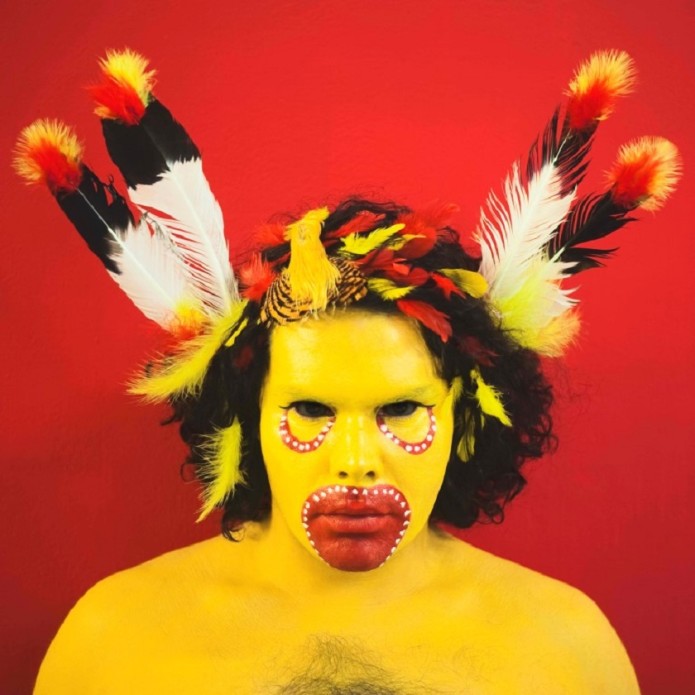
Exhibition: In the future everything will be as certain as it used to be
Exhibition in collaboration with AAMU - Museum of contemporary Aboriginal art, in light of their closure
Agenda
Indigenous Art Now!
Forum and launch for Artlink Indigenous.
The View of Self - Blak on Blak
Blak on Blak - reading Australian blak art, myth and reality in perceptions of contemporary indigenous practice.
The View of the Artist
A panel discussion between artists and museum curators.
Network
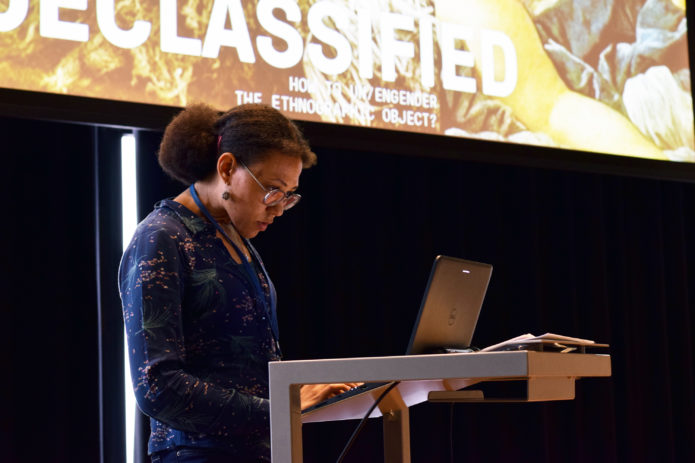
Fanny Wonu Veys
Curator Oceania
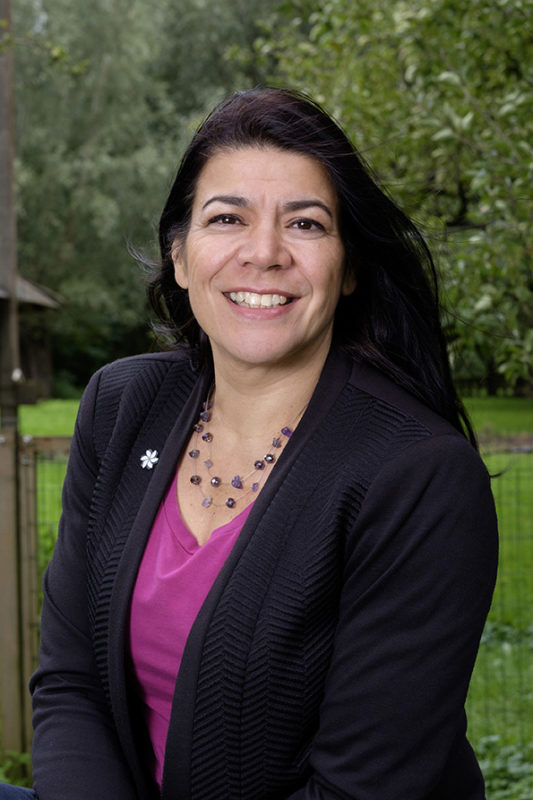
Esther Captain
Historian
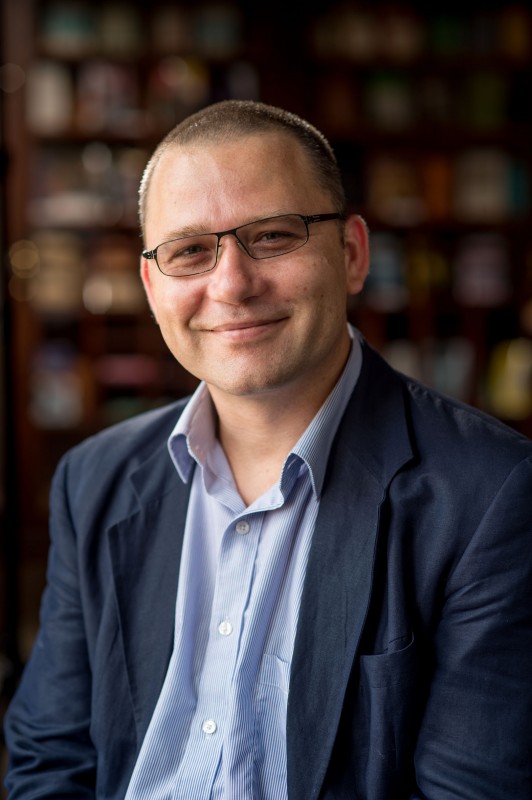
Thomas Berghuis
Curator, Author
